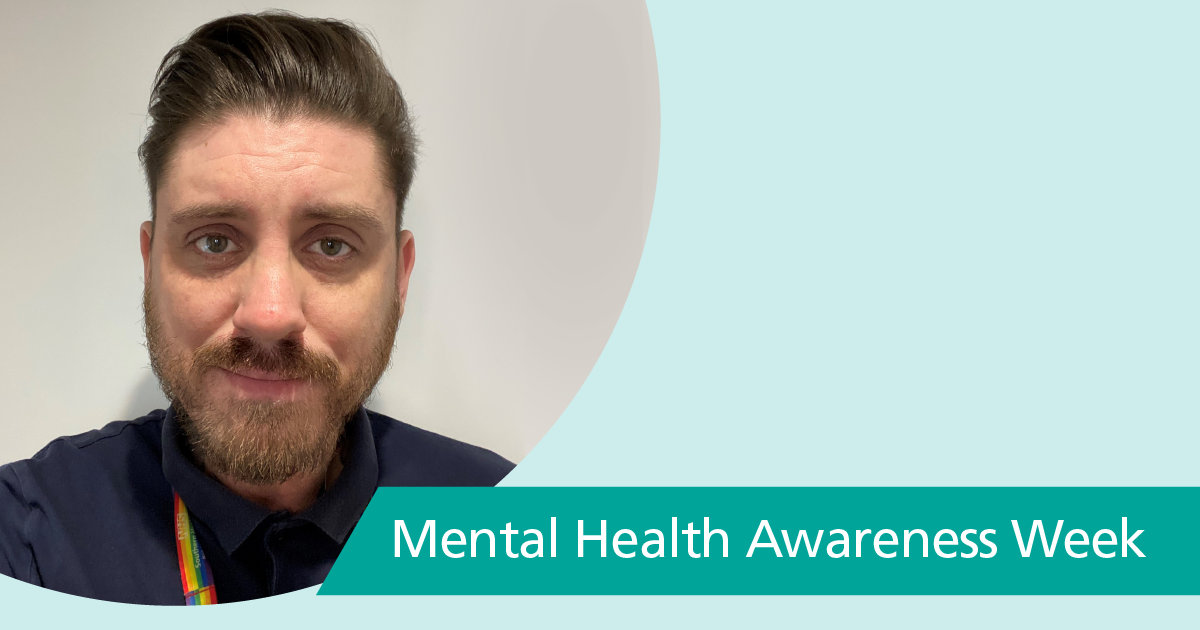Mental Health Awareness Week: Anxiety

Sam Boyes is a Cognitive Behaviour Therapist and Bank Member at Southern Health NHS Foundation Trust. He works within an IAPT (Improving Access to Psychological Therapies) service and part of his role includes, but is not limited to treating a number of anxiety disorders such as; health anxiety, social anxiety, generalised anxiety disorder, obsessive compulsive disorder, post-traumatic stress disorder, panic and various phobias.
This year’s Mental Health Awareness Week is focussing on anxiety and the importance of recognising the impact it can have on people's lives.
We spoke to Sam about what his role involves, how to recognise when anxiety has become a problem and techniques to use when anxiety is affecting your life.
Here’s what he had to say:
Anxiety is a completely normal and healthy emotion which everyone will experience at varying levels at some point during their lives. It is our bodies way of letting us know that there is a potential threat; this is experienced primarily through images or thoughts that we may have, a change in baseline of our emotions/feelings, and physical sensations such as rapid breathing or increased heart rate to name a few.
Anxiety does not always need treatment but it may be worth speaking with a health professional if you are consistently experiencing strong levels of anxiety, if you or a someone in your life notices that you are more avoidant of certain situations, your worries become difficult to control and/or the anxiety starts to have an impact on your mood particularly being unable to enjoy the things that you used to be able to.
Part of my role is to educate people on why anxiety is a normal human response, how anxiety works, understanding with the person how anxiety effects them both cognitively and behaviourally and then using a specific evidence-based treatment plan which is catered to the individual to help treat the disorder. Two of the techniques that I would recommend to someone who would like to know more about their anxiety are;
- Keep a written diary of your thoughts/images/worries (cognitive) and then what you did to overcome the anxiety (behaviour). You could record these in a specific diary, on your phone or wherever is accessible to you. In psychotherapy we would call these a thought diary/worry log; these can be helpful to give people insight as to what is causing the anxiety and how we may be able to challenge or test cognitions.
- CBT suggests that we experience emotion(s) due to our thoughts/images/worries and therefore this technique helps ground us out of our thoughts (cognitive) by bringing us into the present. An effective practical grounding technique that is simple to learn, easy to remember and can be used in most places for people who are experiencing high levels of emotion is 5,4,3,2,1.
Step 1 – List 5 things that you can see
Step 2 – List 4 different things you can touch
Step 3 – List 3 different things you can hear
Step 4 – List 2 things you can smell
Step 5 – List 1 thing you can taste